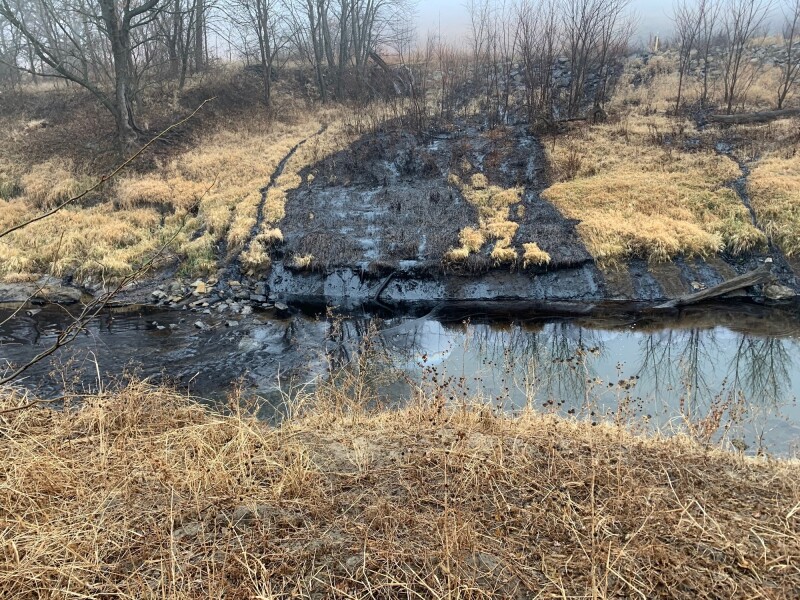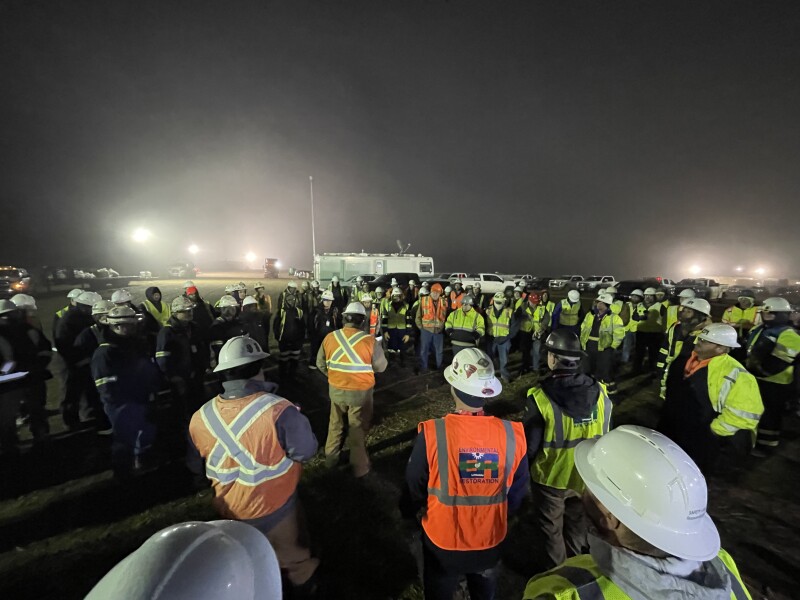Canadian pipeline operator TC Energy said it remains uncertain as to what exactly caused about 14,000 bbl of crude oil to leak out of its Keystone Pipeline in the US on 7 December.
In an update on its response to the spill issued 11 December, TC Energy said, “Our teams continue to actively investigate the cause of the incident. We have not confirmed a timeline for restart and will only resume service when it is safe to do so, and with the approval of the regulator.”
TC Energy and the US Environmental Protection Agency (EPA) confirmed that the leak was contained late last week and that since then cleanup crews have been on the scene with vacuum trucks and skimmers.
The uncontrolled discharge occurred in a section of pipeline in Washington County, Kansas, where crude oil migrated into a freshwater stream. TC Energy began an emergency shutdown of the pipeline as alarms indicated a pressure drop.

The EPA reported that pressure in the pipeline at the time of the rupture, which also resulted in “widespread vegetation staining," was between 700–900 psi. The incident marks the biggest oil spill from a pipeline in the US since 2013 when a pipeline in North Dakota discharged more than 20,000 bbl.
TC Energy said it has more than 250 personnel onsite this week to help recover the oil and to monitor local air quality. TC Energy added in its most recent update that there are no public health concerns at this time but noted that onsite crews are preparing for rain in the area on 12 December which may complicate recovery efforts.
“Our response efforts will continue until we have fully remediated the site,” said TC Energy in a statement on 11 December.
Initial containment efforts included building an earthen dam across the affected stream which is using an underflow pipe to allow water to continue downstream while preventing the spread of the oil.
Authorities in Kansas have warned nearby residents to avoid entering the waterway and to prevent their pets and livestock from entering.
The Keystone Pipeline System spans 2,687 miles from Alberta to refineries in the US Midwest and US Gulf Coast.
News that TC Energy is unable to confirm a restart date for the 600,000 B/D pipeline helped push US oil prices $2 higher to over $73/bbl during the early trading period on 12 December.


